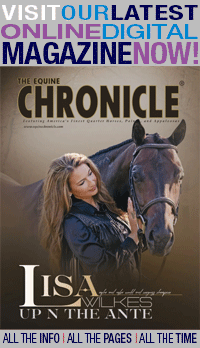Tips For Equine Businesses During COVID-19 Crisis- Think “Strangles Protocol”

Be careful what you touch.
By: Brittany Bevis
With the current COVID-19 pandemic that has forced most of the country into isolation, coupled with health recommendations from the CDC and stay-at-home mandates enacted by state and local officials, countless businesses have been affected. However, the business of a equine professional is a slightly different animal.
Are you a trainer with a barn full of horses belonging to numerous different clients? Are you the owner of a boarding barn with frequent high traffic? Do you simply keep your horses at home?
The American Association of Equine Practitioners has released a set of guidelines specific for equine businesses that are still open at this time. A little confused about how biosecurity should look in your barn? One of the best tips is to think “Strangles Protocol,” but for humans instead.
Almost every horse owner is familiar with Strangles (Streptococcus equi), a highly contagious, bacterial infection that results in respiratory illness. Although Strangles is not often fatal, it’s a serious concern, because barns can be shut down for weeks if the disease travels from one horse to another.
Let’s think about how you would respond if a horse contracted Strangles in your barn. First, you would close the barn to new horses to prevent infection, ie. social distancing. You would make sure to disinfect anything that has come into contact with an infected horse, ie. wash your hands, use hand sanitizer, don’t touch your face. You wouldn’t take an infected horse to an event where it might come into contact with others and spread the disease, ie. stay at home.
Check out more helpful tips, courtesy of the AVMA for equine businesses during this time.
- Be prepared to enforce some restrictions and changes to your barn policies until the pandemic has passed.
- Protecting your health and the health of your staff, family, and clients is paramount during this time.
- Have a plan in place for the essential staff that are required to look after a horse’s minimum needs.
- Provide frequent updates to clients and employees.
- Horse owners should have alternate plans in place to care for their horses if they become sick or hospitalized.
- If you are sick and do not have anyone to look after your animals, the CDC recommends that you wash your hands before and after caring for your animals, as well as wearing a face mask while handling them until you’re cleared by a health care professional.
According to the AVMA, per the CDC, there isn’t any evidence, at this time, that horses can become ill with COVID-19 or spread it to people. But, remember that there is risk of virus spread by touching common items in the barn, such as tack, buckets, water hoses, pitchforks, wheelbarrows, grooming supplies, stall door handles, ect. Anything you touch should be disinfected on a daily basis, and you should not touch your eyes, nose, mouth, or face after touching these items.
If your barn is still open for business, the AVMA recommends that you enforce a six feet of distance rule within the barn, arena, and any common area. You could also use the recommendation that many businesses are using, which limits the number of people allowed within the barn at a time. One way to do this is to create a virtual schedule.
The bottom line is that while you can choose to ride or not to ride during this time, stables where horses are housed cannot be shut down completely. There are horses residing within permanent structures that need to be fed, watered, exercised, have medication administered to, ect. Hopefully, these guidelines will help to keep your barn as safe as possible. Please keep in mind that you should abide by your state’s guidelines for the operation of essential businesses and closure of non essential-businesses during this time.
For more information about COVID-19 safety, view the CDC guidelines, which includes recommendations concerning animals.










